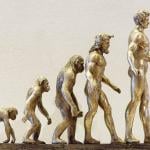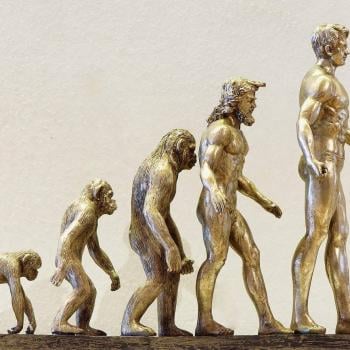
THE RELIGION GUY’S ANSWER:
Ask Harvard University.
But first, The Guy mentions that British philosopher John Locke (1632-1704) said each person has God-given rights to life, liberty, and property. America’s Declaration of Independence replaced “property” with “the Pursuit of Happiness” as among humans’ “unalienable Rights . . . endowed by their Creator.” On the brink of the Declaration’s 250th anniversary, just how can happiness be pursued?
Believe it or not, there’s an academic Journal of Happiness Studies (https://link.springer.com/journal/10902/). A leading center of such scholarship is Harvard’s Leadership & Happiness Laboratory (www.happiness.hks.harvard.edu/), which examines scientific research on best strategies for life and work. The lab’s director is Arthur C. Brooks, who holds professorships at both Harvard’s esteemed Business School and its Kennedy School, which specializes in study of government.
Hundreds of academic “happiness science” reports that Brooks presents to graduate students are popularized for an everyday readership in “Build the Life You Want: The Art and Science of Getting Happier” (2023), which he co-authored with Oprah Winfrey. He follows up next week with “The Happiness Files: Insights on Work and Life” (Harvard Business Review Press) (https://hbr.org/search?search_type=&term=The+Happiness+Files&term=/). This impressively informative yet easily digested book reprints 33 of his weekly “How to Build a Life” columns for theatlantic.com.
Is This Contradictory?
The central scenario might contradict what we, or his ambitious students, suppose. Once basic material needs are met, “money does not buy happiness” and “can never be what makes you truly prosperous.” Nor can natural urges to “power, pleasure, and prestige.” “Chasing success has costs that can end up lowering happiness, as many a dessicated, lonely workaholic can tell you.”
“Instead of trying first to get success and hoping it leads to happiness, start by working on your happiness, which will enhance your success.” Look for “love, enjoyment, satisfaction and meaning in your life,” cultivating first and foremost healthy relationships. “Well-being comes from faith, family, friendship,” and then satisfaction at work. The trick is “chasing better ways to love and serve others rather than elbowing others aside and hoarding worldly rewards.” Once you consolidate your own “sources of joy,” share what you’ve learned with other people.
Hmmm. Does this bring Jesus to mind? “Seek ye first the kingdom of God, and his righteousness; and all these things shall be added unto you” (Matthew 6:33). “What shall it profit a man, if he shall gain the whole world, and lose his own soul?” (Mark 8:36).
Brooks’s “Files” are a rather odd “Religion Q & A” topic since his material is heavily secular in tone and substance. Yet this modern science often affirms age-old religious wisdom, which the author rarely mentions though there are scattered references to Jesus and classical spiritual sages. Instead, he announces “top quality” and “peer-reviewed” science on what’s “empirically true,” from psychological tests, social surveys, biochemistry, and brain science.
Religion and Health
Though not his major theme, Brooks does note well-established research on the religious factor. There’s good evidence that religious grounding puts life’s inevitable challenges and suffering into perspective, Brooks reports. The research “clearly” shows religious belief is “strongly predictive of finding meaning in life, and spirituality is positively correlated with better mental health.” Thus “find a path of transcendence – one that explains the big picture of life and helps you comprehend suffering and the purpose of your existence.” “Practicing a real religion” probably brings the best results, but similar effects occur if people consciously follow a non-religious philosophy such as stoicism.
What are some other key scientific tips for finding happiness?
“Voluntary giving is one of the fastest and most reliable ways to improve your mood,” says brain activity science. Be generous with not only money but your time. “Moral self-identity is crucial for well-being.” For the best psychological payoff, if possible make your donations anonymously. In one study, that brought a 16% boost! (“When you give alms, do not let your left hand know what your right hand is doing, so that your alms may be in secret; and your Father who sees in secret will reward you”– Matthew 6:3).
“The happier you are outside of work the happier you are likely to feel at work.” Healthy marriages, families, and outside relationships benefit your work. To avoid burnout, workers need such priorities and smart bosses foster this. Take vacations and “mini-sabbaths” with smartphones and screens shunned. (“Six days you shall labor, and do all your work; but the seventh day is a sabbath to the Lord your God; in it you shall not do any work” – Exodus 20:8).
If you continually look at your vocation as service for other people instead of self-aggrandizement, you’ll be contented. (“Whoever would be great among you must be your servant, and whoever would be first among you must be slave of all. For the Son of man also came not to be served but to serve, and to give his life as a ransom for many” (Mark 10:43-45).
Inevitable Failures
Failures are inevitable, so instead of fretting over the past, focus on learning from mistakes and setbacks. Worry less to be happier more. Most worries treat future things we cannot predict or control and are “not based on reality most of the time.” In one study, 91% of subjects’ worrying was about things that did not happen. (“Can any one of you by worrying add a single hour to your life? . . . Do not worry about tomorrow, for tomorrow will worry about itself. Each day has enough trouble of its own” — Matthew 6:7,34).
In an age that tells us to relax and give rise to whatever emotions give momentary satisfaction, practice self-control instead. This makes you happier and also those around you made miserable by self-indulgence. (“The fruit of the Spirit is love, joy, peace, patience, kindness, goodness, faithfulness, gentleness, and self-control” – Galatians 5:22-23).
Brooks also covers items that mountains of self-help books address. How to give or take criticism, or speak the truth, however difficult. How to manage job changes or layoffs. How to make good friends and avoid frenemies. How to influence others. How to be a good boss or a good employee. How to be a solid parent. And, yes, how to find your true love.
Speaking of life paths, Brooks’s has been circuitous. A longtime professional French horn player. Later professor at Georgia State and Syracuse Universities. A decade as president of the American Enterprise Institute, a major center-right policy think tank. Return to academe at Harvard in 2019. Religiously, Brooks was raised evangelical Protestant but converted to Catholicism after a teenage “semi-mystical experience.”
(Note: Harvard operates the separate and equally innovative Human Flourishing Program (https://hfh.fas.harvard.edu/), which studies the basis for well-being and is running a 22-nation survey in tandem with Baylor University’s Institute for Studies of Religion.)











